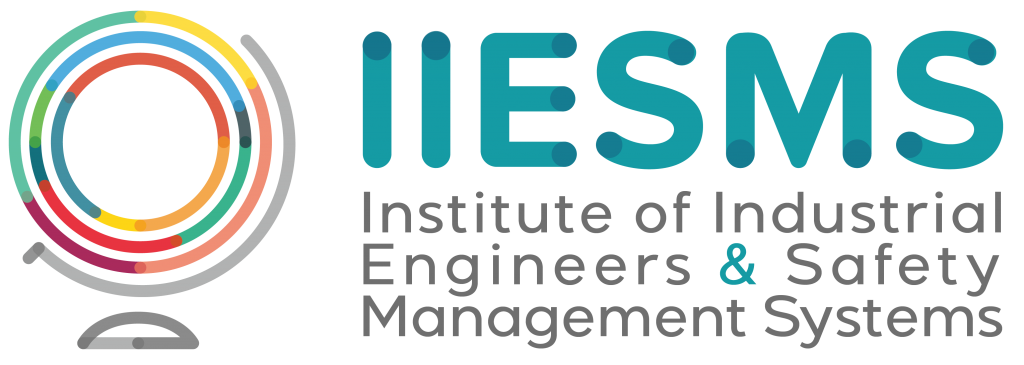Continuing Professional Development (CPD)
Overview
The Institute of Industrial Engineering & Safety Management Systems (IIESMS) is a globally recognised organisation headquartered in Ireland. We are dedicated to advancing industrial engineering, sustainable engineering, fire safety, and occupational health and safety.
Continuing Professional Development (CPD)
Importance of CPD
Continuing Professional Development (CPD) is crucial for maintaining and enhancing professional competence, keeping abreast of industry changes, and ensuring adherence to regulatory requirements. It is particularly vital in fields like fire safety and industrial engineering, where technological advancements and evolving safety standards necessitate ongoing education and skill development.
Processes Surrounding CPD
CPD involves a systematic learning approach, encompassing formal and informal methods. Formal CPD includes structured educational activities such as courses, workshops, and seminars, while informal CPD involves less structured activities like reading industry publications, self-study, and networking with peers.
Formal vs Informal CPD
Formal CPD
Definition: Structured learning activities that are usually assessed or accredited. These are planned and have clear learning objectives.
Examples:
- Courses and Workshops: Attending courses on fire risk assessment or industrial engineering processes.
- Seminars and Conferences: Participating in industry conferences or seminars to learn about the latest trends and technologies.
- Certifications and Qualifications: Obtaining professional health and safety management systems certifications.
Benefits: Provides a recognised and measurable way to demonstrate professional competence and often contributes to career advancement and compliance with industry standards.
Informal CPD
Definition: Unstructured, self-directed learning activities that occur naturally as part of professional practice.
Examples:
- Reading Industry Publications: Staying updated with the latest research, news, and fire safety and industrial engineering articles.
- Peer Discussions: Discuss with colleagues and experts to exchange knowledge and experiences.
- Online Resources: Utilising online courses, webinars, and tutorials that are not necessarily accredited but provide valuable knowledge.
Benefits: It offers flexibility and allows professionals to tailor their learning to their needs and interests.
CPD Requirements
Professionals are required to complete 30 hours of CPD annually, with a balance between formal and informal activities. Specifically, a person can have up to 50% of their CPD as informal learning and the remaining 50% as formal learning. This balance ensures a comprehensive approach to professional development, combining structured learning with practical, on-the-job experiences.
Examples of CPD Activities
Formal CPD Activities:
- Certification Courses: Completing a course on fire safety management.
- Workshops: Attending a workshop on sustainable engineering practices.
- Seminars: Participating in a seminar on the latest occupational health and safety regulations developments.
Informal CPD Activities:
- Reading Journals: Regularly reading journals such as the "Journal of Industrial Engineering" or "Fire Safety Journal."
- Networking: Joining industry-specific forums and discussion groups to share and gain insights.
- Online Learning: Watching webinars on new safety management software or techniques.
Maintaining CPD Records
Professionals should maintain detailed records of their CPD activities, documenting the type of activity, hours spent, and the learning outcomes achieved. This documentation is essential for demonstrating compliance with professional standards and can be required for audits or membership renewals in professional bodies like IIESMS.
CPD is a fundamental aspect of professional fire safety and industrial engineering practice. By engaging in both formal and informal CPD activities, professionals can ensure they remain competent, knowledgeable, and capable of meeting the evolving demands of their fields. The balance of 50% formal and 50% informal CPD, with a requirement of 30 hours annually, promotes a well-rounded approach to continuous learning and professional growth.
More IIESMS Info
Why IIESMS?
Professional Development
Elevate your expertise with our cutting-edge training programs. From technical workshops to leadership seminars, we're committed to powering your career growth and keeping you at the forefront of industry innovations.
Networking Opportunities
Join a thriving community of top minds in industrial engineering and safety. Our events and online platforms connect you with fellow professionals, mentors, and collaborators, expanding your professional circle and potential.
Industry Recognition
Boost your professional standing with IIESEM membership. Our widely respected certifications and awards enhance your credibility, unlocking new career opportunities and setting you apart in the industry. Whether you're a seasoned expert or rising talent, our recognition programs showcase your skills and dedication, making you a standout choice for employers and clients alike.
Knowledge Hub
Dive into a rich pool of industry insights. Our comprehensive collection of publications, research, and case studies gives you instant access to the latest trends and best practices shaping our field. Stay ahead of the curve with regular updates, exclusive member content, and practical resources that translate complex concepts into actionable strategies for your professional success.
